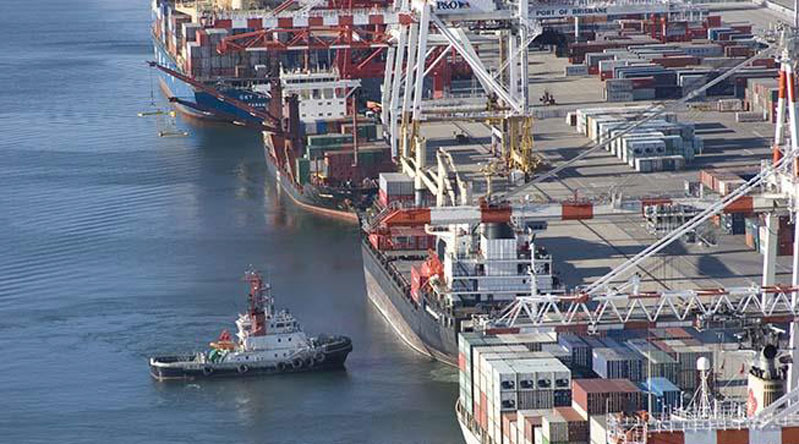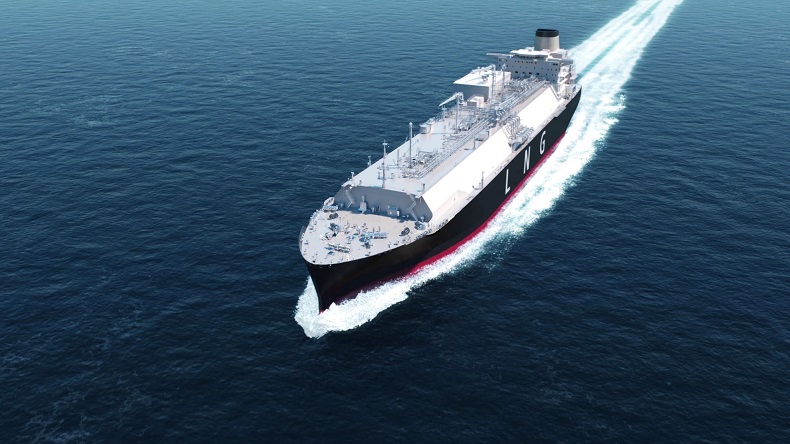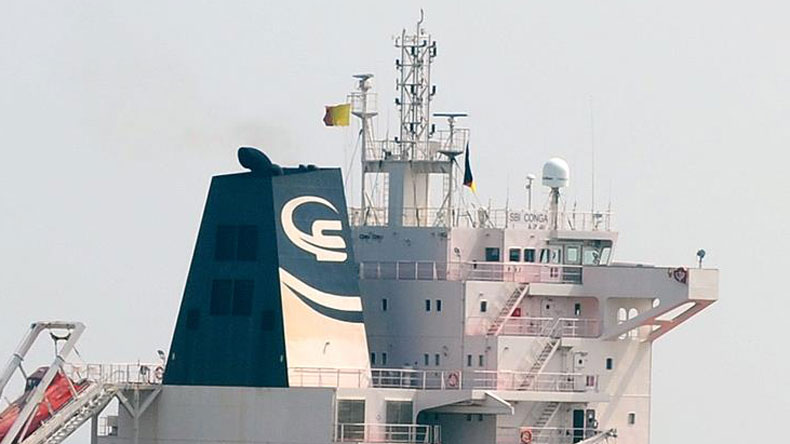Weekly briefing: Beirut blast to impact containers; dry bulk sentiment rises
Also, Shanghai Containerised Freight Index records all-time highs for transpacific spot rates, Shell charters six more energy-efficient LNG tankers
The devastating explosion that destroyed much of the port infrastructure in Beirut is expected to have a lasting effect on container traffic to the country, while the Baltic Dry Index picked up this week on the back of improving sentiment in the capesize and panamax segments
THIS weekly briefing provides sector-by-sector coverage of the biggest news and analysis in shipping, direct from the Lloyd’s List team.
Follow the links within the text to the relevant news items in each market segment
Containers
The news has been dominated by the tragedy at the Lebanese port of Beirut this week. While the explosion was not a container casualty, its impact on the sector in the country will be immense.
Lebanon is dependent on the outside world and connections through its ports. While the damage done to its largest container terminal remains unclear, the destruction of most of Beirut’s port infrastructure will nevertheless see it out of action for some time.
Container lines are already rerouting goods to other regional ports, but Lebanon’s next-largest box terminal in Tripoli has less than half the capacity of Beirut and is understood to be only operating at 40% of its potential, so the outlook remains grim.
Elsewhere in the world, the damage wreaked by the health crisis continues, although it would be difficult to tell from the results of container lines.
As the Shanghai Containerised Freight Index last week recorded all-time highs for transpacific spot rates, a number of carriers’ results indicated that lines were making hay while the sun shines.
Ocean Network Express recorded its best quarterly result since its inception in 2018, as strong rates, low fuel costs and lower operating costs counterbalanced a sharp fall in volumes.
Chinese giant Cosco also bore the fruits of higher freight rates and said the recent waves of consolidation in the container line shipping sector had led to a “better than expected” capacity discipline, which benefited leading carriers with large scale.
But pressure is growing on lines that have weathered the storm so profitably, arguably at the expense of their suppliers and customers.
One large China-based shipper accused carriers of profiteering from the crisis and putting profit before capacity.
The latest figures from Container Trades Statistics showed that volumes did increase in June, albeit by only 1% over May’s figures. But for the first half of the year, liftings are still down 6.8% on last year.
Capacity is gradually being returned to the transpacific trade, but elsewhere lines are holding off from putting too much tonnage back on the water as the economic impact of the pandemic continues. The next couple of months will see determine whether the US consumer really has the power to support the volumes and rates lines seem to expect.
Tankers
Shell is chartering in six more liquefied natural gas tankers to be built in line with energy-efficient designs — to produce lower carbon footprints — in a deal signed with Knutsen LNG, Korea Line Corp and ICBC Financial Leasing.
The six 174,000 cu m tankers will be constructed by South Korea’s Hyundai Heavy Industries and Hyundai Samho Heavy Industries. They are scheduled for delivery from mid-2023.
The six ships will all be equipped with efficient dual-fuel X-DF engines, boil-off management plants, air lubrication systems and shaft generators for auxiliary power. The design and addition of energy efficiency technologies will give these ships the best emissions performance in their class.
Dorian LPG, the very large gas carrier owner, has doubled its net quarterly income despite a decline in global LPG liftings.
The US-listed owner of 24 modern VLGCs said net income in the three months to June 30 was $12.2m. Revenue jumped 19.6% to $73.2m.
Dorian’s fleet averaged a time charter equivalent hire of $41,249 per day for the quarter, up by 39% from $29,671 in the year-earlier period. The performance came despite a 2.7% decline in global LPG liftings during the quarter. Although year-on-year global volumes slipped, US volumes increased by 5.2%.
Jiangnan Shipyard has won orders for three very large gas carriers from AW Shipping, a joint venture between China’s Wanhua Chemical Group and Abu Dhabi National Oil Co.
The dual-fuel 86,000 cu m trio, which can be powered by liquefied petroleum gas, are scheduled for delivery between the third and fourth quarters of 2022, according to a release.
Lloyd’s List understands the deal also includes an option for two more ships. Prices were not disclosed.
Gaslog’s move to consolidate senior management of the group in Greece has led to a change at the top of separately-listed subsidiary GasLog Partners.
Andy Orekar, who has led the partnership since its original public offering in 2014, has decided not to relocate and is stepping down on September 15. The former Goldman Sachs banker’s role will be assumed by Greece-based Paul Wogan, who is already chief executive of mother company GasLog Ltd.
Mr Wogan and GasLog director Julian Metherell have joined a smaller five-person board for the partnership, with four of the previous directors, including Mr Orekar and GasLog’s founder, chairman and largest shareholder Peter G. Livanos, standing down with immediate effect.
The moves, which are expected to save about $3m annually, will also include closure of the group’s Stamford, Connecticut office although head of investor relations Joseph Nelson will continue to be based in the US.
Finally, Japan has launched its first tanker capable of bunkering both liquefied natural gas and very low sulphur fuel oil. The tanker is equipped with storage tanks for 2,500 cu m of LNG and 1,500 cu m of VLSFO.
Dry Bulk
The Baltic Dry Index perked up this week on the back of improving sentiment in the capesize and panamax segments. China’s iron ore restocking efforts was said to be behind the uptick. China’s cement imports were also reported to have resurged, with shipments at 4m tonnes in May, double the level in January. That is a sign of a recovery as stimulus spending on infrastructure and housing boosts demand.
Meanwhile, Lloyd’s List’s mid-year outlook points to a better June to December period than the dismal first six months provided no new second wave of the coronavirus shuts down activities again.
More earnings results were published over the week, with Pacific Basin reporting a net loss of $222m linked to an impairment of $198m on its older, smaller handysizes. That compares with a profit of $8.2m in the year-earlier period. The company announced it will look to the secondhand market for acquisitions while it shifts to larger handysizes.
Scorpio Bulkers, which reported a net loss of $45.1m in the second quarter versus net income of $35m in the year-ago period, said it was transitioning to the offshore wind sector in what it described as a structural growth market. While it was still committed to dry bulk, it wanted to branch out for a more sustainable future, it said.
Safe Bulkers reported a $13.9m net loss versus a $1.8m profit and said it for the same quarter last year. It said the full impact of the coronavirus on the company’s operations and results as well as the wider impact on the dry bulk sector will depend on highly uncertain and unpredictable future developments.
In operational news, a number of bulkers have been detained in Australia for crew violations related to pay.
Eagle Bulk said it defused a situation in which a security guard refused to hand over his firearm when boarding its bulker. The guard took control of the vessel due a pay dispute with his employer.
And lastly, salvage works have begun to refloat the 203,130 dwt capesize Wakashio, which grounded off Mauritius on July 25. The owner said 10 non-essential workers were transferred to shore while pumping operations were being carried out by salvage experts and the remaining crew.




